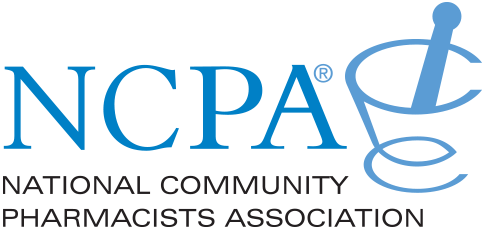
NCPA Raises Concerns About Implementation of Medicare Drug Price Negotiation Program

A recent analysis from NCPA showed potential weekly cash flow shortfalls for pharmacies and annual revenue losses.
In an interview with Pharmacy Times, Ronna Hauser, PharmD, senior vice president of policy and pharmacy affairs at the National Community Pharmacists Association (NCPA), discussed concerns the organization has about the implementation of the Medicare Drug Price Negotiation Program (MDPNP). A recent analysis from NCPA showed potential weekly cash flow shortfalls for pharmacies, and Hauser said that although the program has potential, pharmacies cannot be expected to foot the bill.
Pharmacy Times: A recent analysis from NCPA highlighted potential weekly cash flow shortfalls of nearly $11,000 per pharmacy due to payment delays under the MDPNP. How does this impact pharmacies’ day-to-day operations and ability to meet financial complications?
Ronna Hauser, PharmD: Yes, absolutely, great question. On behalf of our members, the independently owned community pharmacies, [NCPA has] several concerns with how CMS is implementing the Medicare Drug Price Negotiation Program. So, this program goes into effect January 1, 2026, and these drugs are very commonly dispensed by our community pharmacy and long-term care pharmacy members, so the program needs to be right, and it needs to work so our patients can still access their needed medications. But… the program cannot in essence be floated by pharmacies. So, we're at a point in time here, because of the construct of the program, that pharmacies in essence will be floating the program and waiting several weeks, a minimum of 3 weeks, to be paid manufacture refund amounts for these negotiated drugs, so that's unsustainable. The law says you have to pay pharmacies promptly, within 14 days. Those are the rules for Part D. So, we definitely need our total payment for these negotiated drugs to be obtained in 14 days, and right now we're looking at, again, as I said, best case, 3 weeks or 21 days before we will receive full payment for these negotiated drugs.
Pharmacy Times: The report suggests that pharmacies could lose an average of $43,000 in annual revenue, equivalent to a pharmacy technician’s salary. How might this revenue loss affect pharmacies’ staffing levels, service offerings, and overall ability to serve patients?
Hauser: Yes. So, in addition to the $11,000 average weekly loss in cash flow—and again, that's because pharmacies are purchasing these negotiated drugs at the same rates we do today from our wholesalers—we'll be paid a low payment when we dispense them from the pharmacy benefit managers. Hopefully that payment would equate to the maximum fair price that's been negotiated for these drugs. And then we'll be waiting for our refund payment from the manufacturers for at least, a minimum, as I mentioned, of 21 days. So that creates the float, or the $11,000 in weekly cash flow concerns. Now, if you look at the totality of the program, and based on the amounts that we're being paid today to dispense these drugs vs based on the way this new program will work when drug price negotiation kicks off in January, we're looking at, again, average annual revenue losses of $43,000 per pharmacy, depending on the pharmacy, depending on their patient mix, drug mix, etc. Those numbers could be more, again, unsustainable, you know, an unsustainable business model here when the pharmacy is not only floating the program, but also potentially can end up losing money dispensing these drugs.
Pharmacy Times: According to NCPA, 93.2% of independent pharmacies are considering or have already chosen not to stock some of the negotiated drugs. What factors are driving this decision, and how might this impact patient access to essential medications in the community?
Hauser: Yeah, so great question. Right now, from where we're sitting and where this program sits currently, it's unsustainable for independent pharmacies. The economics just don't work, right? Pharmacies cannot bankroll this program. We saw pharmacies, in essence, bankrolling Medicare Part D at the advent of that program about 20 years ago, and Congress had to quickly step in and pass prompt pay, hence the 14-day payment windows that we have now. We cannot be collateral damage once again and float this program. So, again, as it exists today, the economics do not work out. If the economics do not work out, and our members can't afford to participate in this program, ultimately, the patients lose. So based on what our members understand to date about this program, and taking into consideration the cash flow concerns and the annual average revenue losses, we surveyed our members in January, hence the numbers you quoted. You know, 93-plus percent [of pharmacies] are saying they can't afford to stock these drugs. Some have already made the decision not to stock these drugs. Moving forward, others are looking at making those decisions. So, it’s very important at the end of the day, it's all about our patients and taking care of them and making sure they're getting the right medication, the best medication for them at the lowest possible cost for them. And again, the economics just don't work right now. I think that's why you're seeing the survey results that you are.
Newsletter
Stay informed on drug updates, treatment guidelines, and pharmacy practice trends—subscribe to Pharmacy Times for weekly clinical insights.


























